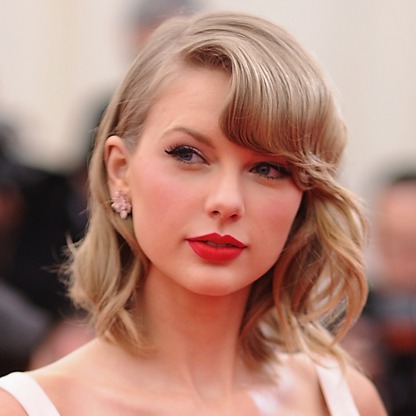In case you missed it, pop star Taylor Swift laid the smack down on one of the world's most powerful corporations, Apple, when her pressure made Tim Cook and company back down on their plans to not pay artist royalties during the three-month free trial period for the new Apple Music service.
For more details, here is the gist of the issue, from a recent piece in The Atlantic:
Swift had intervened in a struggle brewing for weeks between Apple and the independent music labels, publishers, and artists it was negotiating with to license songs for the company’s forthcoming on-demand streaming service, Apple Music. The sticking point: To lure customers to sign up upon launch, Apple would offer a free three-month trial period, during which, it proposed, it would not pay artists when their songs were streamed. Swift took to Tumblr on Saturday to explain she would withhold her most recent album, 1989,because Apple’s terms were “shocking, disappointing, and completely unlike this historically progressive and generous company.”
After digesting Taylor's take, Apple relented, and stated that they would, in fact, pay streaming royalties to participating artists during consumers three month free trial period.
So Taylor was able to win, to make the corporate behemoth blink, and get them to change their stance on paying artists for their work, even as they were themselves giving away that work during the three month free trial period for Apple Music.
What can we learn or at least consider more generally from the Taylor v. Apple drama?
Three things that I can think of...
1. People just can't be expected to work for free. It doesn't matter if you are Taylor Swift and would not really be impacted by missing three months worth of streaming royalties or if you are an emerging artist that is looking to make there mark, giving away creative content to giant corporations is not sustainable for most artists. In a world where corporations of all kinds are desperate for ideas and content, the idea that creators should just give away that content is insane.
2. Individuals can amass tremendous influence - if they work for it. Sure, Apple is the largest company in the world. But Swift, even as an individual, has earned influence and leverage from her smart development and cultivation of her fans. She interacts with them, gives them significant attention, values them, and thus has created a fiercely loyal following. Even one person can match the power of a massive, global brand like Apple.
3. The only way for anyone to have power and security is to be a creator. Apple and Spotify and Tidal all rely on the creative output of thousands and thousands of creative artists for their product. Most of these artists individually don't have the popularity and power of Swift and thus can't wield the power of Swift. But, together they collectively comprise all of the product that Apple and Spotify are trying to monetize. And beyond that, being a creator, a creative, is one of the only ways that anyone has of ensuring their own long tern sustainability and viability. Your creative work is the only thing that distinguishes you from everyone else, and even the robots. Guard your work carefully.
I am pretty sure I would not be able to recognize a single Taylor Swift song. But I do recognize her smarts and her foresight.
Nicely done, Ms. Swift.